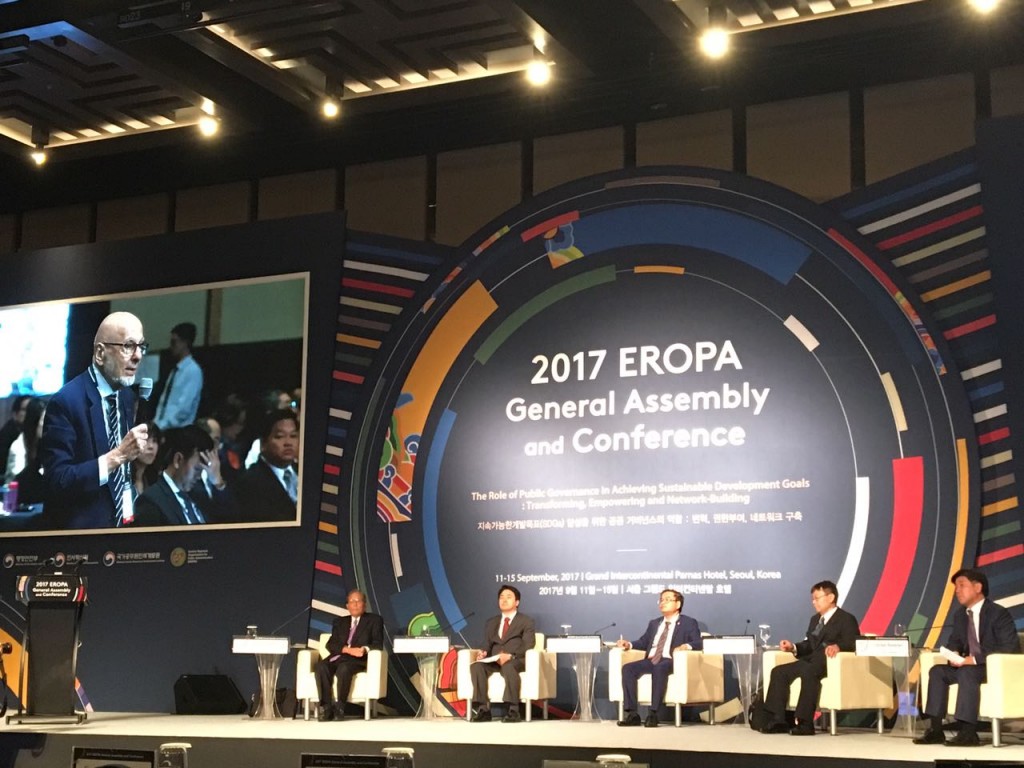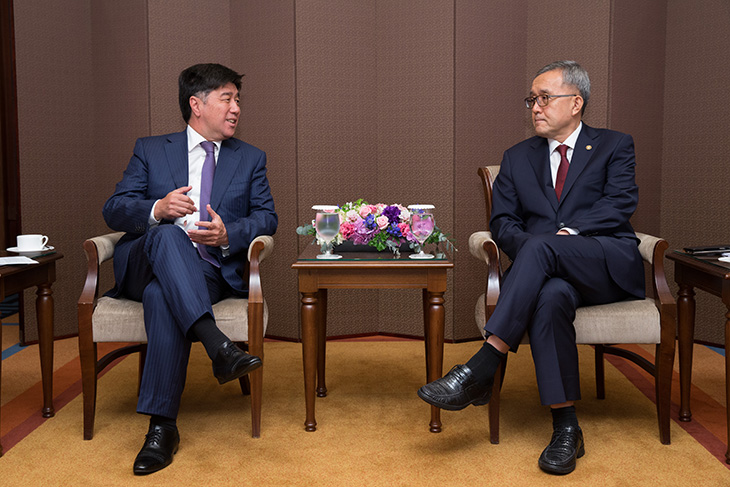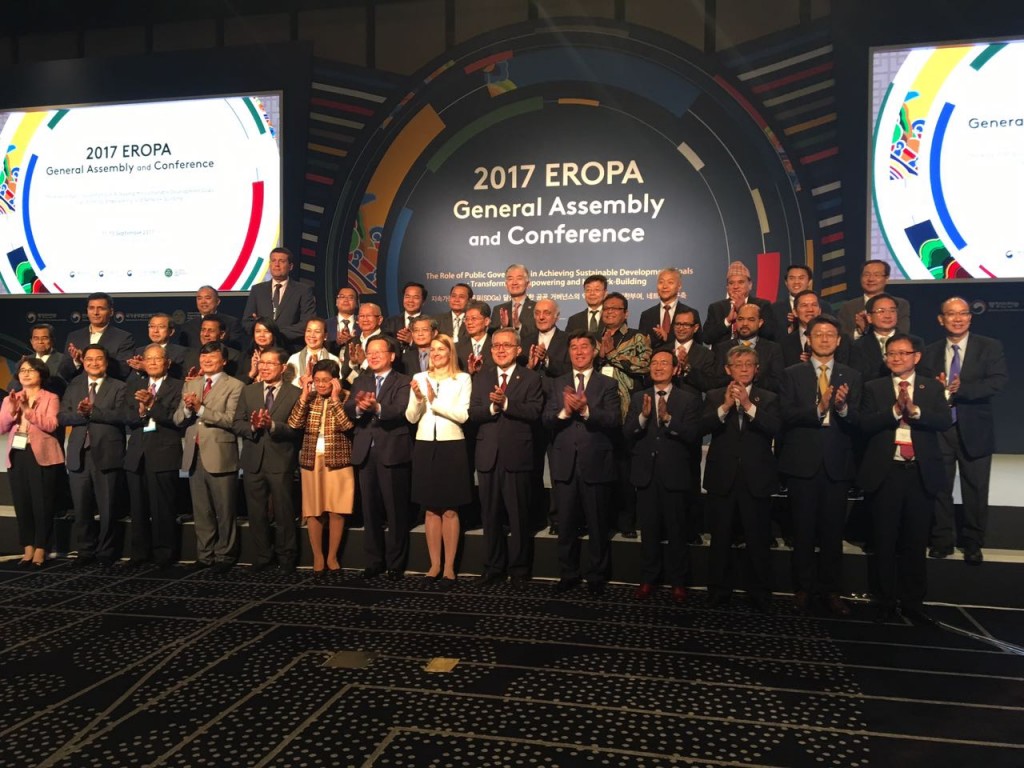ASTANA – Asian civil servants and political figures together with representatives of the Organisation for Economic Co-operation and Development (OECD) secretariat discussed innovative solutions and shared best practices in administrative reforms at the Asian Leadership Forum, held at the 2017 EROPA (Eastern Regional Organisation for Public Administration) General Assembly annual conference in Seoul.
Alikhan Baimenov, chairperson of Astana-based Regional Hub on civil service, presented the nation’s achievements in public governance reforms, highlighting further enhancement and effectiveness.
Creating a special environment with maximum development and use of people’s potential and innovations is a key factor, he said, as is horizontal and vertical balance of institutional power, responsibility and resources. Baimenov also noted the importance of leaders’ abilities to harmonise their decisions with the aims of society, the state and sustainable development goals.
Baimenov met with Korean Minister of Personnel Management Pan Suk Kim and OECD public sector division directorate for public governance and territorial development head Edwin Lau to discuss further steps in joint research projects.
The regional hub in Astana was established by the government and the United Nations Development Programme (UNDP) at a constituent conference in 2013 with the participation of representatives from 25 countries and five international organisations. The hub, which aims to promote developing effective public service systems in the region, currently has participation from 34 countries and five international organisations.
The hub is a multilateral institutional platform for the continuous exchange of knowledge and experience in developing civil service to stimulate transforming public service in the region using innovative approaches to civil service reform and developing practical solutions supported by comprehensive research. It has financial and institutional support from the Kazakh government and UNDP. Participating countries extend from North and South America and Europe through Central Asia and the Caucasus to ASEAN (Association of Southeast Asian Nations) countries, which indicates effective public service is a constant and universal need for all countries.
EROPA is composed of 10 countries from the Asia-Pacific region (China, India, Indonesia, Iran, Japan, Korea, Nepal, the Philippines, Thailand and Vietnam), 97 organisations and approximately 600 individuals united with the common goal of public governance enhancement.
OECD aims to promote policies that will improve the economic and social well-being of people around the world. It organises forums in which governments can work together to share experiences and seek solutions to common problems. Cooperation with different governments helps to understand what drives economic, social and environmental change and analyse and compare data to predict future trends. OECD sets international standards for agriculture and taxes for chemical safety.



